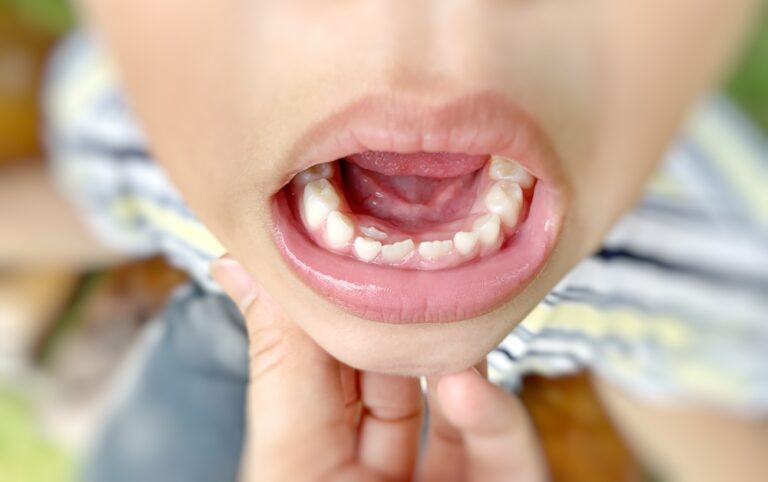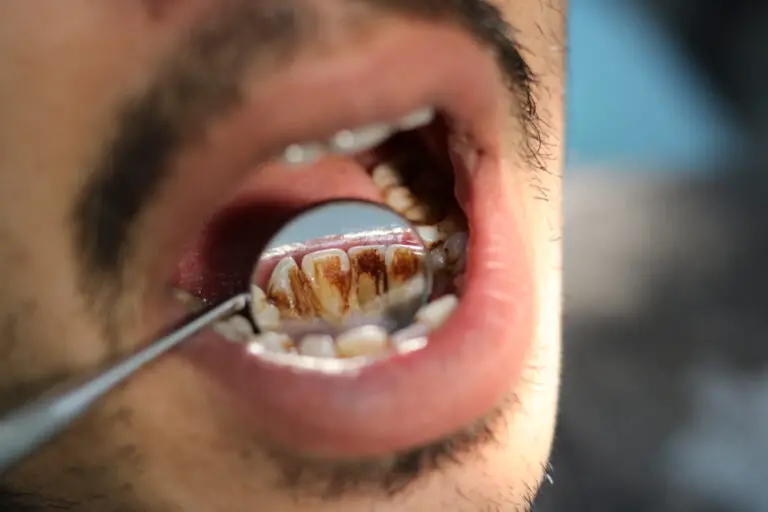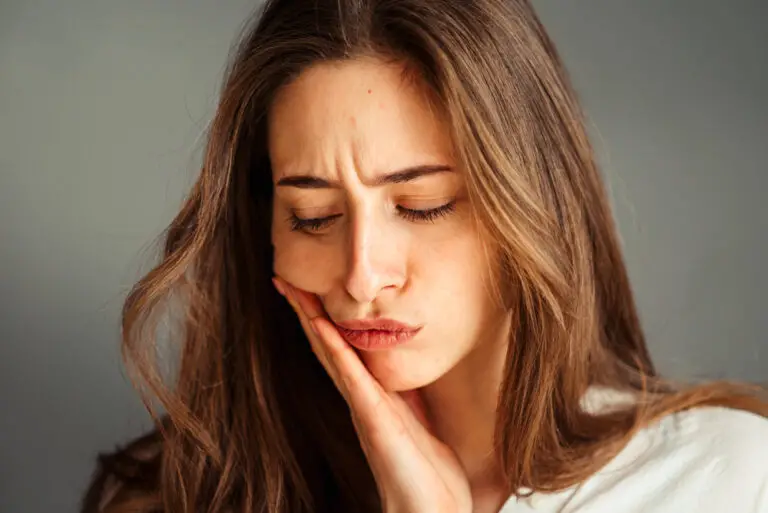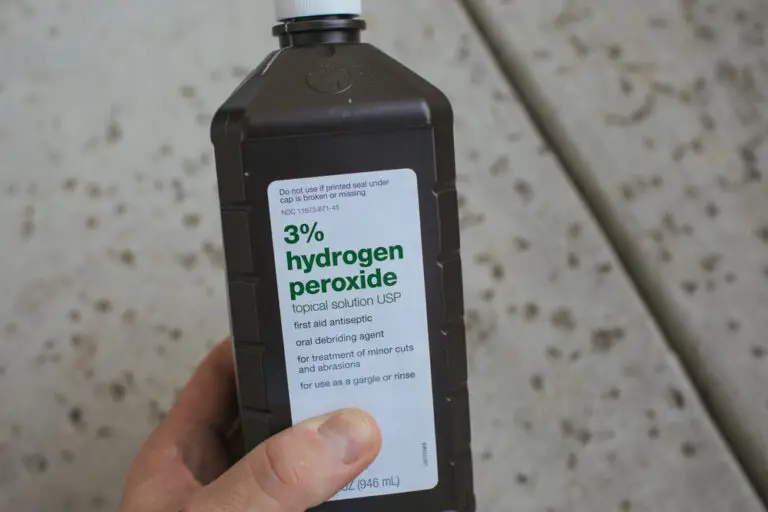Whether you’ve gone to your dentist for a whitening treatment or you’ve chosen to use one of the commonly sold over-the-counter whitening at-home kits you’ve probably noticed that your teeth feel a bit different after the whitening process. This is because they are dehydrated from the procedure.
This can sound scary and it can indeed feel a bit uncomfortable too but it is to be expected. It also raises a very logical question, however – how to rehydrate teeth after whitening? What’s more – what does it mean to rehydrate your teeth and is this really something you need to actively do? Let’s find out below.
Do teeth really need to be rehydrated after whitening and why?
Teeth do get dehydrated after a whitening procedure, whether it’s done at home or it’s in-office whitening. The reason for that tooth dehydration is simple – the procedure includes bleaching agents such as carbamide peroxide and hydrogen peroxide.
This can sound scary at first but such bleaching agents are designed to be as safe for the teeth as possible and they only bleach away the undesirable layers of plaque and other particles that are stuck in your teeth’s pores and affect their color but can’t be removed by just brushing or even cleaning your teeth.
The problem is that these bleaching agents will also strip virtually everything else off your teeth’s enamel including any moisture that should be there. So, your teeth are bound to be a bit dehydrated for a while which can feel uncomfortable, especially if you have tooth sensitivity.
It’s also important to keep in mind that there are differences in the severity of the dehydration depending on what whitening method you’ve chosen to go with. On average, an in-office teeth whitening procedure will dehydrate your teeth more than an at-home kit because the bleaching agent in in-office whitening kits is about 30% more concentrated.
Of course, this is also what makes them more effective, more expensive, and it’s also why they are only available in dentists’ offices and under a professional’s supervision. That’s become some people’s gums and teeth are just too sensitive for an extra-potent teeth whitening kit. If these stronger whitening kits were available over the counter, many people would accidentally burn their gums.
Even if you use some of the weaker at-home whitening kits, however, there is still going to be a fair bit of dehydration.
How do you know if your teeth are dehydrated?
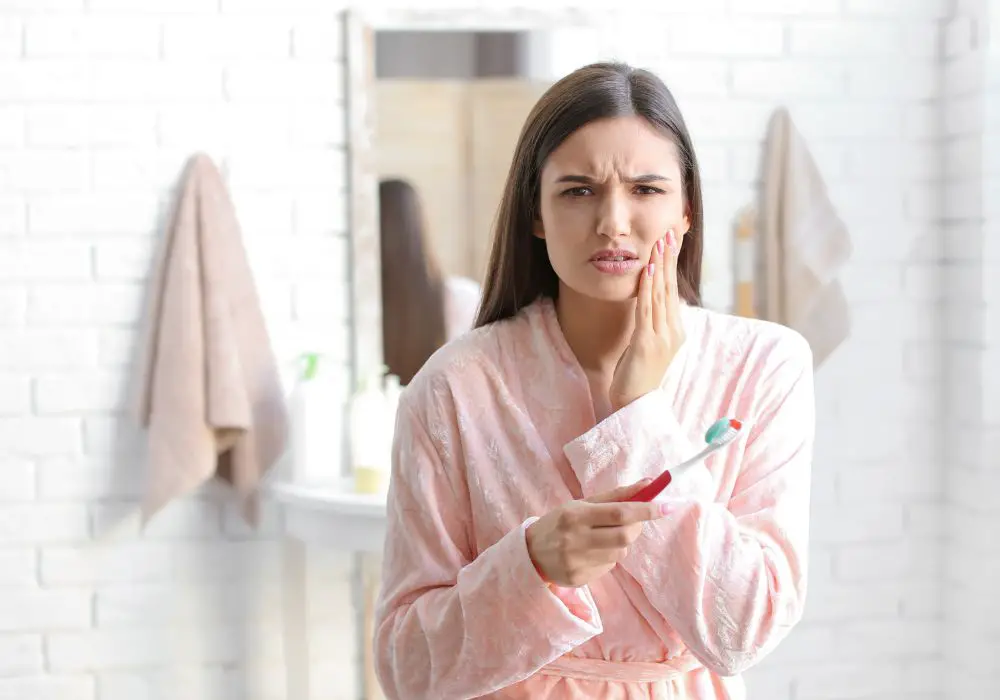
If you’ve used a teeth whitening kit or a whitening gel with any amount of a bleaching agent in it, you can pretty much just assume that your teeth are dehydrated – that’s just what bleach does. Of course, not all dental products marketed as “teeth whitening” have a bleaching agent as their active ingredient.
“Whitening” toothpaste, for example, doesn’t but it also isn’t actually whitening, at least not in the same way as a whitening gel or a whitening tray kit. Instead, whitening toothpaste is simply better at removing new surface stains before they’ve pigmented your teeth. When using an actual teeth whitening product, however, there certainly will be a fair bit of dehydration going on.
How much dehydration is too much, however? What are some of the telltale signs you need to watch out for in case your teeth are a bit too dehydrated, to the point that you need to be extra careful with them? Here are a few pointers to watch out for:
- There are white spots on your teeth
- Your teeth feel extra porous
- Tooth pain
- Reddish gums
- Swollen gums
- Dry tongue
- Cracked lips
- Bad breath
- Gum bleeding
The latter few feel quite self-explanatory. Bad breath is almost always a consequence of a dehydrated mouth, be it after teeth whitening or after sleeping with your mouth open for a few hours. If your gums are reddish, swollen, or bleeding, that’s almost always because they are overly sensitive and easily harmed, as is the case after teeth whitening.
A dry tongue or cracked lips are also symptoms of dehydration and some tooth pain or at least discomfort is to be expected after whitening too. It’s also normal if your teeth feel more porous to your tongue’s touch – the reason they feel that way is because teeth are normally porous and their texture is easier to notice when they are dehydrated.
As for the white spots – probably the main point that worries most people. The good news is that white spots on teeth aren’t caused by the whitening procedure itself – they are just exposed by it. The bad news is that if a teeth whitening procedure exposes white spots on your teeth, that means you have decalcification spots or hypo calcification spots, as they are also called.
These spots are essentially areas on your teeth that have lost some or most of their calcium. This is commonly due to sub-par oral hygiene, too many sugary and acidic foods in your diet, too much unaddressed plaque buildup, and so on.
In that sense, the teeth whitening procedure has simply shone a light on the hypo calcification problem. Yet, it is still frustrating that for a few days after the procedure, while your teeth are still dehydrated, you’ll have a few extra white spots on them for everyone around you to see.
Regardless of which of the above symptoms you’re experiencing, there’s no need to panic. Some of them are uncomfortable and unpleasant, and they do mean that your teeth are significantly dehydrated, but both the dehydration and its symptoms will pass after a few days.
How to Rehydrate Teeth After Whitening?
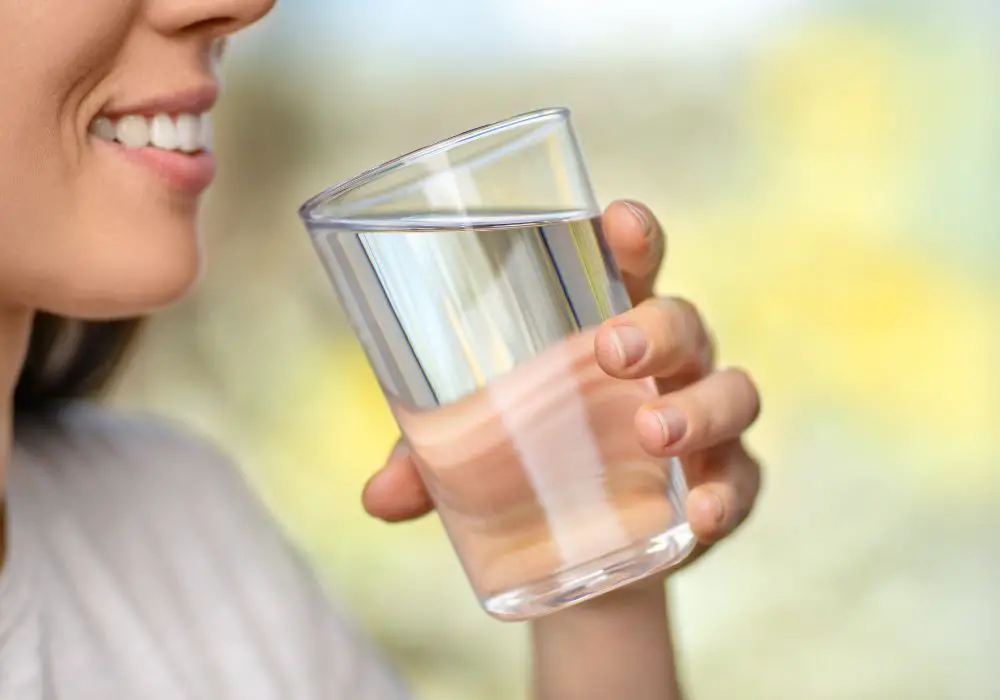
It usually isn’t necessary to do anything to rehydrate your teeth – your saliva will do that for you. Drinking water is often recommended but, of course, that’s not something you should do solely because you’ve had your teeth whitened – that’s something you should do in general anyway.
So, when your dentist tells you to drink extra water, they are essentially just reminding you to do the thing you should be doing anyway. If you do forget to drink enough water, however, that’d obviously be bad – both for your health in general and for the dehydration of your mouth and teeth. If you’re dehydrated, you’ll be producing less saliva, and your teeth will take much longer to get rehydrated.
Another benefit of water is that it helps remineralize your teeth’s enamel after the whitening procedure.
Still – drinking water isn’t a special thing to do when you want to rehydrate your teeth. It’s just something you’re expected to do anyway. If you were already in the habit of drinking enough water every day, there is no need to suddenly start drinking extra.
How long does it take for your teeth to rehydrate after whitening?
The exact wait time will depend on the severity of the problem but it’s usually at least two days and rarely more than seven days.
How to Avoid New Stains Immediately after Whitening Your Teeth?

While it’s generally recommended to avoid certain foods and drinks if you don’t want stains on your teeth, it’s especially important to steer clear of them for the first couple of days after a whitening procedure. That’s because your tooth enamel is especially susceptible to stains during that period.
The foods and drinks to avoid normally involve dark beverages such as red wine, coffee, tea, and fruit juices, smoking tobacco products, as well as foods such as dark berries, tomato sauce, soy, chocolate, vinegar, and others.
Instead, the foods that are considered both safe for discoloration and generally healthy include things such as yogurt, rice, chicken, cheese, pasta, vegetables, bananas, egg whites, fish, and others.
Do you need a different toothpaste after a teeth whitening procedure?
There are special types of toothpaste and gels your dentist may recommend after the teeth whitening procedure if your teeth and gums are overly sensitive. Such products are mostly just meant to alleviate the symptoms of discomfort, however, and your teeth’s dehydration would have gotten better without them too.
What is a fluoride treatment and do you need it after whitening?
Alternatively, if you’re feeling particularly bad, your dentist can also recommend a fluoride treatment. This is a pretty quick and simple procedure that uses fluoride to help speed up the recovery of your enamel after the whitening.
In Conclusion
As you can see, rehydrating your teeth after either a DIY or a professional teeth whitening isn’t something that’s strictly necessary – rather, it just happens on its own thanks to your saliva. At the same time, however, there are certain Dos and Don’ts you’d probably want to adhere to for the first few days after the teeth whitening procedure.
These can range from avoiding coffee and tobacco products for a few days to using special toothpaste and post-whitening gel products that can help you alleviate the dehydration symptoms and faster restore your teeth’s enamel faster.
Ideally, you won’t need to do anything of the sort and you’re teeth will just rehydrate themselves after a bit. Plus, if your dentist knew that you had heightened teeth sensitivity they should have warned you about it ahead of time. Even in that case, however, your teeth will almost certainly get back to normal after a while, with or without the help of a special protective toothpaste or gel.


